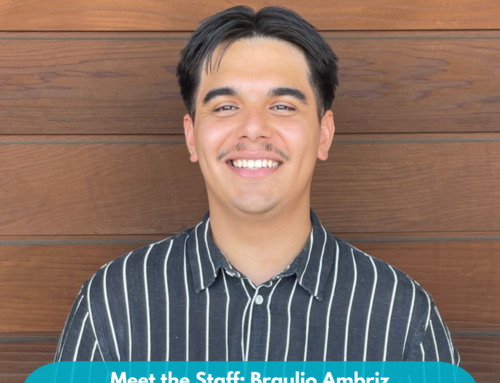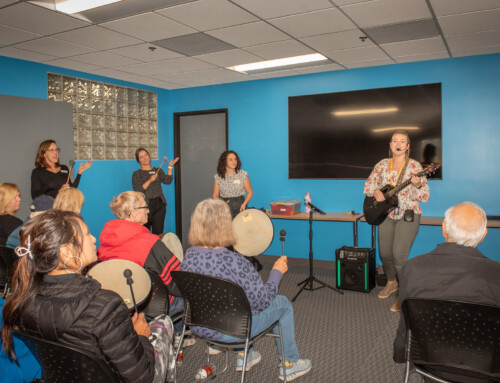 There are many things to consider when caring for someone with Alzheimer’s or another dementia. Experts recommend starting discussions about arrangements for legal, financial and health care matters early, as cognitive changes can gradually affect a person’s ability to think clearly or make decisions.
There are many things to consider when caring for someone with Alzheimer’s or another dementia. Experts recommend starting discussions about arrangements for legal, financial and health care matters early, as cognitive changes can gradually affect a person’s ability to think clearly or make decisions.
It can be important to retain the services of a lawyer when preparing advance planning documents. A lawyer can help interpret laws and suggest ways to ensure that the person’s and family’s wishes are honored. It’s important to understand that laws vary by state, and changes in situation – for instance, a divorce, relocation, or death in the family – can influence how documents are prepared and maintained.
We’ve put together this guide as a place to start. To learn more, call Alzheimer’s San Diego at 858.492.4400 and speak with a dementia expert.
Important documents to have in place
- Advanced Health Care Directive: An Advanced Health Care Directive is a legal document that communicates health care wishes. In most cases, these documents must be prepared while the person is legally able to execute them. There are two elements in an Advanced Health Care Directive—a living will and a power of attorney for health care.
- A Living Will records a person’s wishes for medical treatment near the end of life. It may specify the extent of life-sustaining treatment (ventilation, life support) and major health care decisions.
- A Power of Attorney (POA) for Health Care designates a person to make healthcare decisions when a person can no longer do so. Such examples include, changing health care providers, deciding long term care plans about where a person will live, and access to medical records.
- Power of Attorney (POA) for Finances: A POA for Finances names someone to make financial decisions when the person can no longer do so. It can be “springing,” meaning that it springs into action if a person becomes incapacitated or “durable,” meaning it becomes effective as soon as it is signed and continues to be effective after a person is incapacitated.
- Living Trust: A Living Trust provides instructions about the person’s estate and appoints someone, called the “trustee,” to hold title to property and funds for the beneficiaries. The trustee follows these instructions after the person can no longer manage his or her affairs.
- Will: A Will indicates how a person’s assets and estate will be distributed upon death.
- Physician’s Orders for Life-Sustaining Treatment (POLST): A POLST form provides more detailed guidance about medical care preferences in addition to the Advanced Directive, which can prevent unwanted treatments and ensure medical care wishes are honored. The POLST form must be completed with and signed by a doctor.
- Do Not Resuscitate (DNR) Order: A DNR instructs health care professionals not to perform cardiopulmonary resuscitation (CPR) if a person’s heart stops or if he or she stops breathing. A DNR order is signed by a doctor and put into a person’s medical chart, often during a hospital visit or medical procedure. May not be necessary if a POLST is on file.
- Do Not Intubate Order (DNI): A DNI instructs health care professionals in a hospital or nursing facility that a person does not want to be put on a breathing machine. May not be necessary if a POLST is on file.
Other legal items
- Waiver of Health Insurance Portability and Accountability Act (HIPAA): A legal document that allows an individual’s health information to be used or disclosed to a third party. This document must be signed at hospital in order to speak to the doctor on another person’s behalf.
- Veteran’s Benefits: If a person is a Veteran, they may be eligible to receive additional financial, custodial or supportive services.
- Medicare Overview: A federal health insurance program for any person over the age of 65, has a disability under the age of 65, or has end-stage renal disease. This is an entitlement program and not based on financial need. It includes four parts: A: Hospital insurance, B: Medical insurance, C: Medicare-approved private health insurance, D: Prescription drug coverage. Medicare does not pay for long term care (custodial care).
- Medicaid Overview: Known as “Medi-Cal” in the state of California, is a needs based program that provides free or low-cost health coverage for children and adults with limited income and/or resources. It pays for “medically necessary” health care services. Medi-Cal does cover long term care (custodial care).
- Compassionate Allowance: Compassionate Allowance is for anyone under the age of 65 whose medical conditions are so severe that their conditions meet Social Security’s definition of disability. It expedites the processing of SSDI and SSI disability claims for applicants. After receiving SSDI benefits for 24 months, beneficiaries are eligible for Medicare, including Part A (hospital benefits), Part B (medical benefits) and Part D (drug benefits).
- Conservatorship: A conservatorship is a process where a judge appoints a responsible person or organization (called the “conservator”) to care for another adult (called the “conservatee”) who cannot care for himself or herself or manage his or her own finances. Conservatorship is commonly done if a POA cannot uphold duties or if a person is past the point of being legally able to designate a person to make decisions on their behalf.
Types of Long Term Care
- In-Home Care: In-Home Care Providers offer non-medical services in the home to assist with personal care, companionship and supervision. Average cost is $20-$30 per hour.
- Board and Care: Board and care homes provide seniors with the same services available in larger assisted living communities; the difference is that these facilities are “regular” houses in residential neighborhoods that are equipped, adapted and staffed to care for a small number of residents. Average cost is $3000-$5000 per month.
- Assisted Living: Assisted living is a senior living option for those with minimal needs for assistance with daily living and care. Its purpose is to help adults live independently in a safe environment and access additional assistance as needed. Average cost is $4000-$7000 per month.
- Dementia and Memory Care: Memory care is similar to assisted living, except the staff, activities and environment are catered to persons with Alzheimer’s disease and related dementia. Memory care units usually provide 24-hour supervised care within a separate wing or floor of a residential facility free-standing. Average cost is $5000-$10,000 per month.
- Skilled Nursing Care: Skilled Nursing is the highest level of residential care for older adults. They provide custodial care, including getting in and out of bed, and providing assistance with feeding, bathing, toileting and dressing. However, they differ from other residential communities in that they also provide a high level of medical care. A licensed physician supervises each patient’s care and a nurse or other medical professional is almost always on the premises. Skilled nursing care is available on site 24 hours a day. Average cost is $8000-$12,000 per month.
Steps for Getting Affairs in Order
Start discussions early. The rate of decline differs for each person experiencing cognitive changes, and his or her ability to be involved in planning will decline over time. Remember that not all people are diagnosed at an early stage.
- Gather information about income, property, investments, insurance, and savings.
- Meet with a lawyer to set up long term plans and legal documentation.
- Meet with a financial advisor or fiduciary to discuss managing financial affairs. Professional Fiduciaries can be location by visiting the Professional Fiduciary Association of California.
- Put copies of legal documents and other important papers in one place. If papers are in a bank safe deposit box, keep copies in a file at home.
- Check regularly to see if there’s anything new to add or update.
- Find out what specific institutions need to have on file
- Tell trusted family members or friends where important papers are. If there is no one to designate, ask a lawyer to help.
If you have further questions or need assistance with advanced care planning, contact the experts at Alzheimer’s San Diego by calling 858-492-4400.




